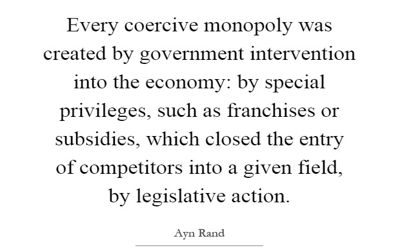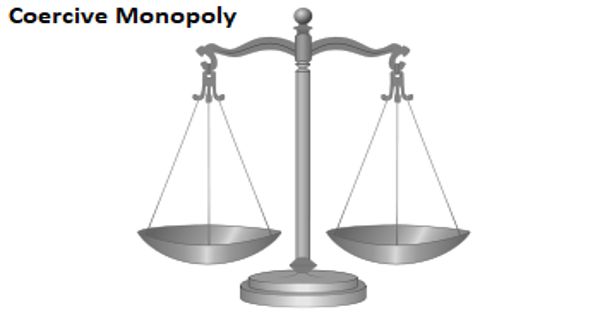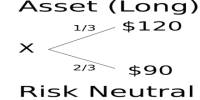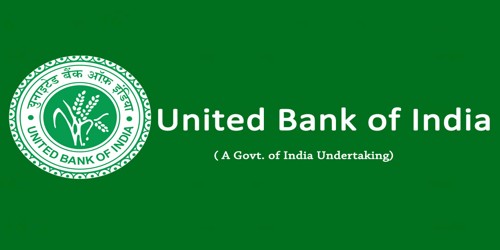Coercive Monopoly – in economics and business ethics
In economics, a coercive monopoly is a form of monopoly in which a firm maintains its status as the sole provider of a good or service by using coercion to prohibit competition. In economics and business ethics, it is a firm that is able to raise prices and make production decisions, without the risk that competition would arise to draw away their customers. It is a situation where a firm maintains a monopoly on the production of a particular good or service by means of coercively enforced barriers to entry that keeps the potential competition away.
A monopoly refers to when a company and its product offerings dominate a sector or industry. A coercive monopoly has very few incentives to keep prices low and may deliberately price gouge consumers by curtailing production.
Coercive monopolies are distinguished from other forms of monopoly in that they maintain their monopoly status via coercive barriers to entry. A coercive monopoly is not merely a sole supplier of a particular kind of good or service (a monopoly), but it is a monopoly where there is no opportunity to compete with it through means such as price competition, technological or product innovation, or marketing; entry into the field is closed. Coercive monopoly is to be contrasted with natural monopoly, where the nature of the good or service being supplied makes it more economically efficient for there to be a sole provider, and where high barriers to entry are not enforced through coercion.

Monopolies typically have an unfair advantage over their competition since they are either the only provider of a product or control most of the market share or customers for their product. As a coercive monopoly is securely shielded from the possibility of competition, it is able to make pricing and production decisions with the assurance that no competition will arise. This coercion may be initiated by the government, by the firm itself, or by a third party. It is a case of a non-contestable market. A corporation that successfully engages in coercion to prevent competitors from entering the market operates a coercive monopoly. In ordinary language, describing a practice as coercive usually entails a condemnation of that practice.
A monopoly refers to when a company and its product offerings dominate a sector or industry. A coercive monopoly has very few incentives to keep prices low and may deliberately price gouge consumers by curtailing production. In a government monopoly, an agency under the direct authority of the government itself holds the monopoly, and monopoly status is sustained by the enforcement of laws or regulations that ban competition, or reserve exclusive control over factors of production for the government. Also, according to economist Murray Rothbard, “a coercive monopolist will tend to perform his service badly and inefficiently.”
















